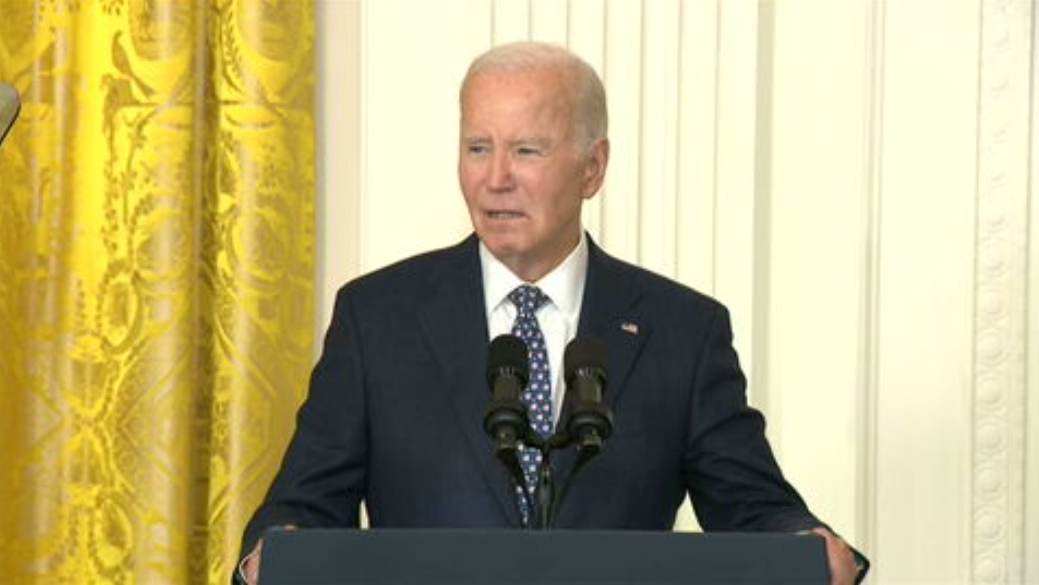Assessing President Biden’s Foreign Policy Legacy
In a recent speech, President Joe Biden emphasized his belief that the United States is now safer and more economically secure as he wraps up his term in office. Reflecting on his achievements as head of U.S. foreign policy, he stated that America is more globally competitive than it was four years ago. Biden’s address pointed out his administration’s efforts in strengthening alliances, particularly in Europe, as well as initiatives aimed at enhancing U.S. semiconductor manufacturing. These claims, however, will inevitably be viewed in contrast to the return to power of former President Donald Trump, whose protectionist approaches have gained traction among voters once again.
As Biden prepares to transition out of his presidency, he faces a landscape marked by political strife and conflicted international relations. His administration has encountered numerous challenges, including the chaotic withdrawal from Afghanistan, which was met with intense scrutiny and criticism. This incident marked an early setback for Biden, as the conclusion of America’s longest war led to a rapid collapse of the Afghan government and left a host of humanitarian crises in its wake. Biden maintains that ending the war was necessary, asserting that history will favor this decision; however, critics, including Trump, argue it epitomizes the failures of his presidency.
Rebuilding Alliances Post-Trump
One of Biden’s primary goals upon taking office was to rebuild the alliances that had been strained during Trump’s tenure. His administration quickly rolled out measures to repair relationships with NATO allies that had suffered due to the prior administration’s “America First” foreign policy. He claimed these efforts resulted in a more unified front against global threats. Nonetheless, Biden’s foreign policy has been challenged by crises such as Russia’s invasion of Ukraine and ongoing tensions in the Middle East, which have tested the resilience of these international alliances.
In response to the Russian invasion, Biden rallied both European and non-European allies to provide substantial military and economic assistance to Ukraine. His administration coordinated sanctions against Russia, aimed at crippling its economy and isolating the Kremlin as a result of its actions. Biden emphasized the importance of collective action and stressed his satisfaction with Ukraine’s continued independence, attributing this to the groundwork laid by previous collaborations. However, myriad obstacles remain, and the effectiveness of this coalition in the long run is uncertain, especially considering Trump’s conflicting stance on foreign aid and military engagement.
Middle East Policy Challenges
Biden’s foreign policy in the Middle East has been both robust and controversial. His commitment to supporting Israel, particularly during the ongoing conflict with Hamas, has drawn both praise and ire. While the Biden administration has endorsed Israel’s right to defend itself, the devastating humanitarian consequences in Gaza have prompted international criticism. Calls for a shift in U.S. policy and an arms embargo on Israel have highlighted the complex dynamics in the region. Biden’s response to the situation has been criticized by some, leading to concerns that the administration’s inaction has allowed Iran and Hamas to operate with less scrutiny.
In light of the escalating violence in the Gaza Strip, Biden’s relationships with key regional leaders have been tested. Activists advocating for Palestinian rights have repeatedly challenged the administration to take a firmer stance against Israeli military actions. The Biden administration has sought to navigate the diplomatic challenges while trying to ensure the rescue of hostages held by Hamas. The administration’s effort to balance military support for Israel with humanitarian concerns for Palestinian civilians exemplifies the complexities of foreign policy in an area rife with longstanding conflicts.
The Future of U.S. Foreign Policy
As the Biden administration prepares to conclude its term, the future of U.S. foreign policy appears uncertain. Trump’s criticism of Biden’s achievements has raised questions about the direction in which American diplomacy will head under a potential Republican leadership. Trump’s claims regarding a detrimental impact of Biden’s initiatives serve as a stark contrast to Biden’s assertions of progress. The conversation surrounding foreign policy will likely remain a key focal point in upcoming elections, with opinions sharply divided along party lines. While Biden highlights the importance of collaborative global solutions, the protectionist sentiment echoed by Trump continues to resonate with a substantial portion of the electorate.
Conclusion
In summary, Biden’s foreign policy legacy is characterized by significant accomplishments and prevailing challenges. His administration worked diligently to strengthen international alliances, provide support to Ukraine, and respond to conflicts in the Middle East. However, setbacks, most notably the chaotic withdrawal from Afghanistan and ongoing tensions in Gaza, have overshadowed these achievements. As the political landscape shifts, the effectiveness of Biden’s foreign policy initiatives will continue to be scrutinized and debated, leaving an uncertain path ahead for U.S. diplomacy in the coming years.
FAQs
What were some of Biden’s foreign policy accomplishments?
Biden successfully expanded NATO support, provided significant military aid to Ukraine, and increased investments in U.S. semiconductor manufacturing to counteract competition from China.
How did the withdrawal from Afghanistan affect Biden’s presidency?
The withdrawal was highly criticized, leading to a chaotic situation where the U.S.-backed Afghan government collapsed, causing significant humanitarian crises and international scrutiny of Biden’s leadership.
What challenges did Biden face in the Middle East?
Biden’s administration dealt with ongoing conflict between Israel and Hamas, which raised humanitarian concerns and led to criticism over U.S. support for military operations in the Gaza Strip.
How might Trump’s approach to foreign policy differ from Biden’s?
Trump’s approach is characterized by protectionism and a more unilateral stance, which contrasts with Biden’s focus on multilateralism and collaboration with international allies.
What is the potential impact of Biden’s foreign policy on future U.S. administrations?
Biden’s policies may influence future administrations in terms of how to address international challenges, build alliances, and navigate complex global relationships, but differing ideologies will shape the actual outcomes.

